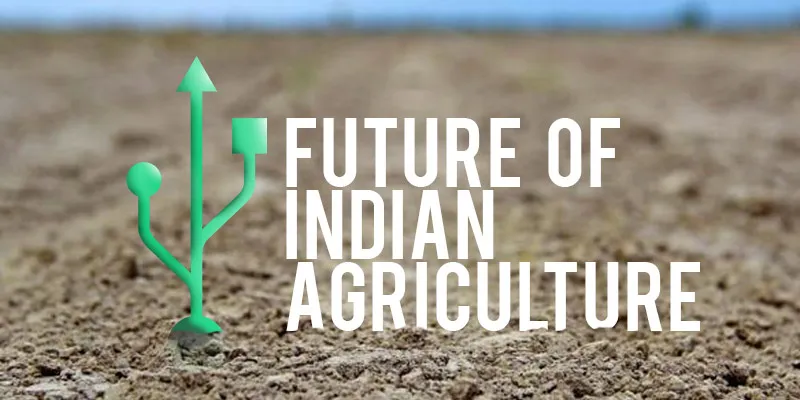How farm-based social enterprises are changing what was once a stagnant sector
It is a long-held view that innovation in the farming sector in India has meagrely progressed since the green revolution of the 60s and 70s. The drastic change in that period brought high-yield varieties of seeds to the forefront, along with major improvements in irrigation methods and soil nutrition. It is a common argument that the farmers in India continue to follow the paradigm established by the green revolution even today, despite the fact that natural and economic factors demand revolutionary changes in the agri-sector once again.

Bold Experiments
For a respite, a collection of innovations is finally breaking this impasse. The entry of a handful of social enterprises has brought a structured thought process, access to a global knowledge base, some private investment and a horde of raw enthusiasm to the farm sector, promising to mend the missing link of experimentation on Indian farms.
For far too long, private entities have looked down upon Indian agriculture as an opportunity-less arena, giving them no chips to introduce new products and services, customised specifically for the sector. However, the new crop of social enterprises are making bold moves, expressing their confidence in the farmers’ capacity to respond positively given a chance.
A good example would be Cropin, which uses a suite of software and mobile apps powered by GIS and data science to deliver a range of services to not only farmers, but also other entities in the business of agriculture. Cropin has built mobile applications that feed real-time data and advice on practices related to particular crops.
Another Bengaluru-based company, Flybird Farm Innovations, offers sensors that use accurate soil moisture and soil temperature values to predict the irrigation needs of farmland. Meanwhile, Aarav Unmanned Systems has built a Quadrotor UAV, assembled with accessories, that can process aerial images for large scale land surveys and crop monitoring.
Grassroots practitioners certainly dream of accessing such powerful technology, simply because it clears the two main limiting factors in the agronomy- the generation and analysis of crucial data, and precise and faster decision making.
Innovation for Small Farmers
However, observers and development professionals do not see an immediate answer to the problems of small farmers in the current flood of expensive and complex technology and analytics. This is an important point, because 67 percent of farmland in India is held by small farmers. So a company looking to scale and tap nation-wide consumers has to look at developing solutions that the majority is willing to try.
One such company is Ecozen, which has launched a solar-powered micro cold storage that the company claims to be affordable and portable. With this facility available locally, a farmer can sell at better prices by keeping for himself greater room to hold the produce. Similarly, a very promising EM3 Agri Services is trying to close an apparent gap in the demand for heavy farm machinery like tractors by providing it on a pay-per-use basis. It is a fact that most farmers in India are financially incapable of buying heavy farm machines, and this could be a real boon for them.
Hence, the fact remains that farm-focused social enterprises need to understand the real challenges faced by farmers in the country if they are to attain any significant success. And these solutions do not lie solely in technology. This is evident from the performance of so many procurement startups like Parvata foods and Safe Harvest. By directly marketing the produce to urban retail points, these companies target a major problem for farmers - unfair market prices, and as a plus, encourage them to adopt healthier farming practices.
The recent innovation in farming has also shown that the solutions may not at all be about bringing in a new product or business model. Instead, using public policy to build on existing ideas so as to make them work effectively can also bring about radical change. The introduction of forward contracts in the business of farmer producer companies (FPC) is one example of smartly exploiting policy. Once registered with NCDEX, a FPC can take futures positions at a specific price for a commodity (allowed to trade by exchange), shielding, henceforth, all its members from any price fluctuations or price dips.
Opportunities in Unconventional Zones
This article also looks to put a focus on the kind of innovation on the side of investors who are keen on the agri-sector. It is important to remember that the most distressed farmers and the farmlands exist in the most backward blocks of the country. This illustrates the need for investors to start looking at the potential in the low income states of Central and Eastern India, along with the Himalayan region, where a majority of the 200 backward blocks exist. An exciting initiative in this respect is the recently launched INVENT programme, which aims to incubate social enterprises with a specific focus on eight low income states in India.
A few more funds will have to carve their path out to the non-metro zones before we can begin to see adequate volumes of activity and experiment on Indian farms.
Together, these models show that it is not wise to explore innovation merely in a single area. Technology, data analytics, financial precision, marketing strategy, community mobilisation and institutional design are just a few playgrounds of innovation in the farm sector. And this sector never ceases to surprise.
(Disclaimer: The views and opinions expressed in this article are those of the author and do not necessarily reflect the views of YourStory.)







